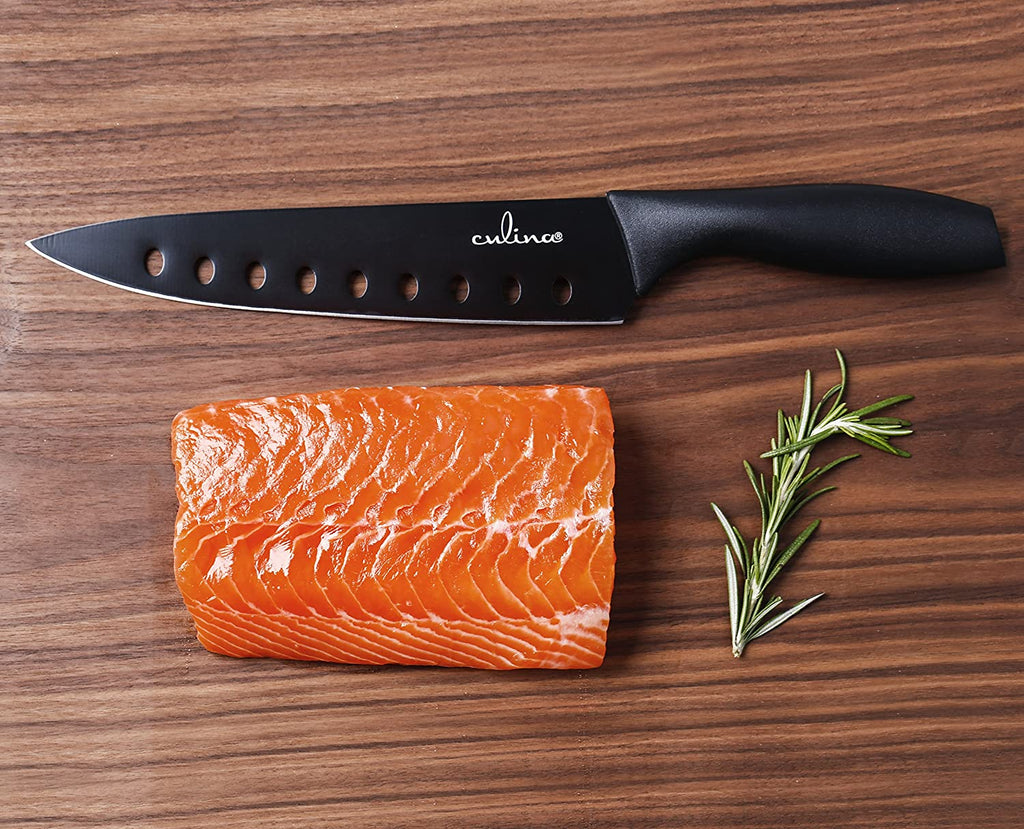How to Clean a Santoku Knife: Unmissable Step-by-Step Guide
Written By James Morgan
For barbecue enthusiasts, maintaining your kitchen tools, especially your Santoku knife, is imperative for achieving perfection in your culinary creations. The Santoku knife is a beloved tool for many, thanks to its versatility and precision. However, cleaning it properly ensures it remains in excellent condition and performs at its best. In this article, we'll explore the ins and outs of how to clean a Santoku knife efficiently and effectively.

Why Proper Cleaning Matters
The importance of cleaning your Santoku knife cannot be overstated. Proper care not only extends the lifespan of your knife but also maintains its sharpness and performance. Moreover, considering that barbecue often involves various raw meats and ingredients, ensuring your knife is clean helps prevent cross-contamination and foodborne illnesses.
:max_bytes(150000):strip_icc()/__opt__aboutcom__coeus__resources__content_migration__simply_recipes__uploads__2019__05__knife_skills_METHOD00001-b77d1297728843ecb601b3541419d2ed.jpg)
Step-by-Step Cleaning Process
1. Immediate Rinse
As soon as you finish using your Santoku knife, rinse it under warm running water. This helps remove any residual food particles that might adhere to the blade.
2. Gentle Scrubbing
Use a soft sponge and mild dish soap to gently scrub the blade. Avoid abrasive materials like steel wool, which can damage the blade's surface. For difficult-to-remove debris, a knife sharpener can sometimes help as well.
3. Thorough Drying
After washing, immediately dry the knife with a soft cloth. Leaving the knife to air dry can cause moisture spots and potential rusting, especially if the knife is made from high-carbon steel.
4. Regular Oiling
For added protection, you can periodically oil your Santoku knife. Use food-grade mineral oil to lightly coat the blade, which helps prevent rust and maintains the blade's sheen. Oiling is particularly important for knives that are not used frequently.
5. Proper Storage
Store your Santoku knife in a knife block or on a magnetic strip rather than in a drawer. This prevents the blade from coming into contact with other utensils, which can cause dulling or damage.

Common Mistakes to Avoid
1. Using a Dishwasher
Never put your Santoku knife in the dishwasher. The high heat and harsh detergents can damage the blade and handle. Always hand wash your knife.
2. Delaying Cleaning
Leaving your knife dirty for an extended period can lead to staining and corrosion. Make cleaning a priority right after you finish using the knife.

Pro Tips for Barbecue Enthusiasts
Barbecue enthusiasts understand that the tools they use can make or break their culinary masterpieces. Here are some expert tips to help you maintain your Santoku knife like a pro:
1. Hone Regularly
Honing your knife on a regular basis keeps the edge sharp and ready for precision tasks. Learn how to sharpen a Santoku knife for best results.
2. Avoid Cutting on Hard Surfaces
Refrain from using your Santoku knife on surfaces like glass or granite, which can dull the blade quickly. Instead, opt for cutting boards made from wood or plastic.
3. Know Your Knife
Understanding the unique design and purpose of your Santoku knife allows you to utilize it effectively. Discover more about how to use a Santoku knife for various tasks.
FAQs
Q: How often should I oil my Santoku knife?
A: It's recommended to oil your Santoku knife once a month if you use it frequently. For infrequent use, oiling every few months should be sufficient.
Q: Can I use olive oil to coat my knife?
A: No, it's better to use food-grade mineral oil. Olive oil can become sticky over time and may lead to a rancid smell.
Q: Is a Santoku knife suitable for cutting meat?
A: Yes, the Santoku knife is versatile and can be used to cut meat, vegetables, and fish. However, make sure it's properly cleaned between different tasks to avoid cross-contamination.
For more insights on knife skills, check out this useful guide.
As an Amazon Associate, I earn from qualifying purchases.



